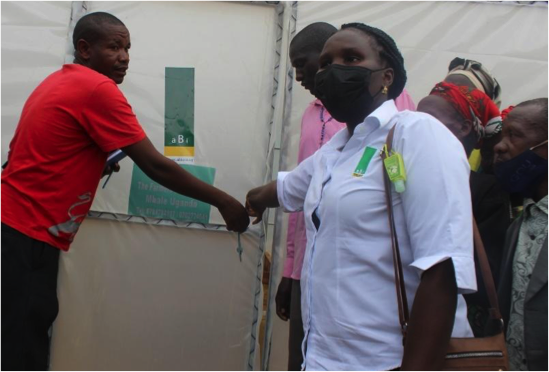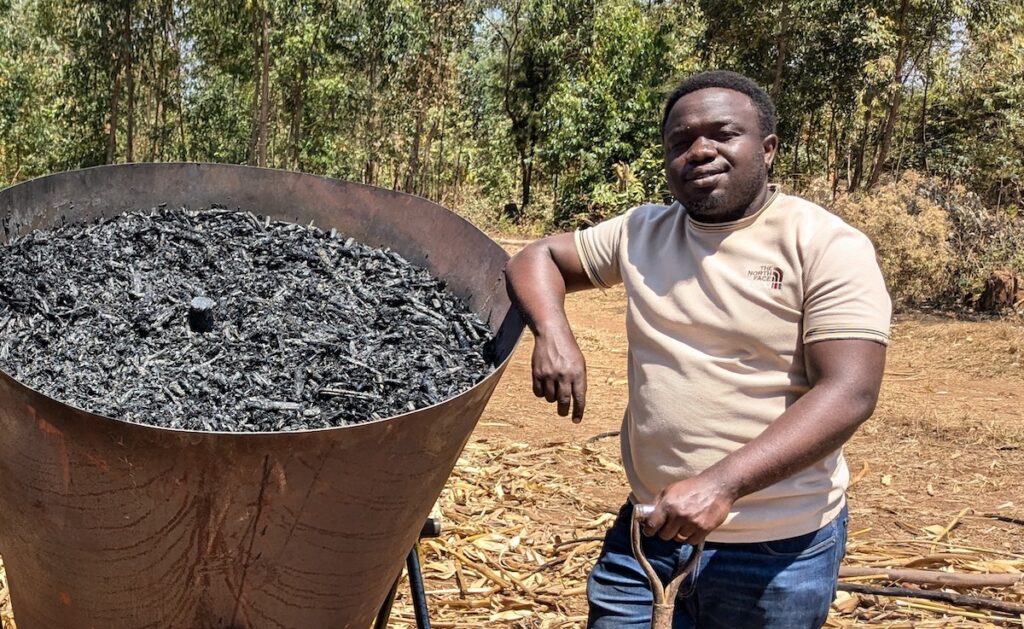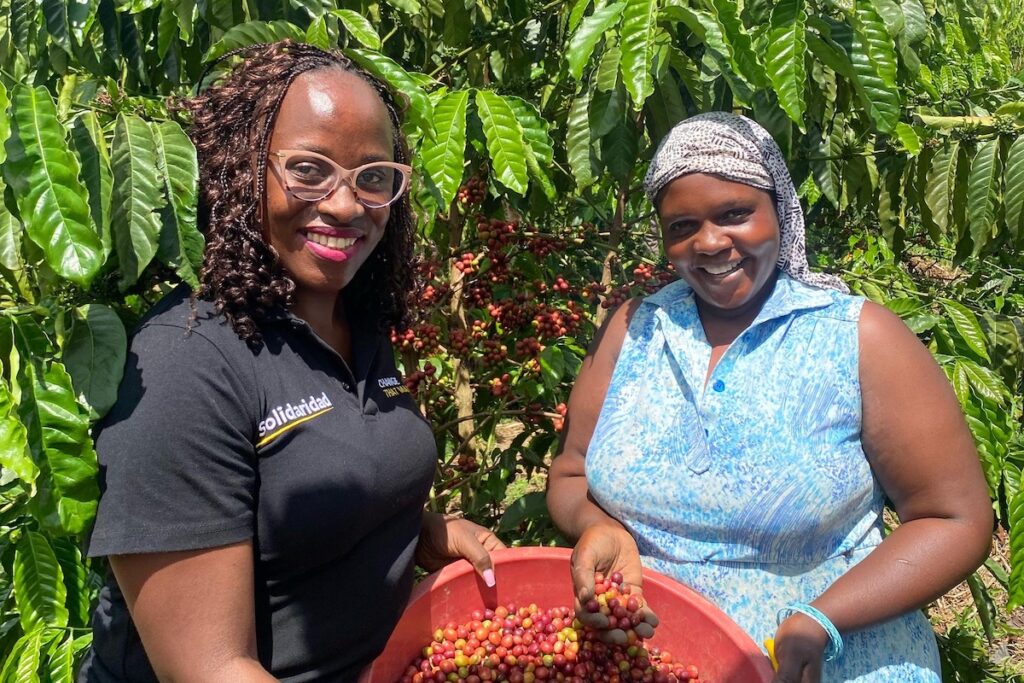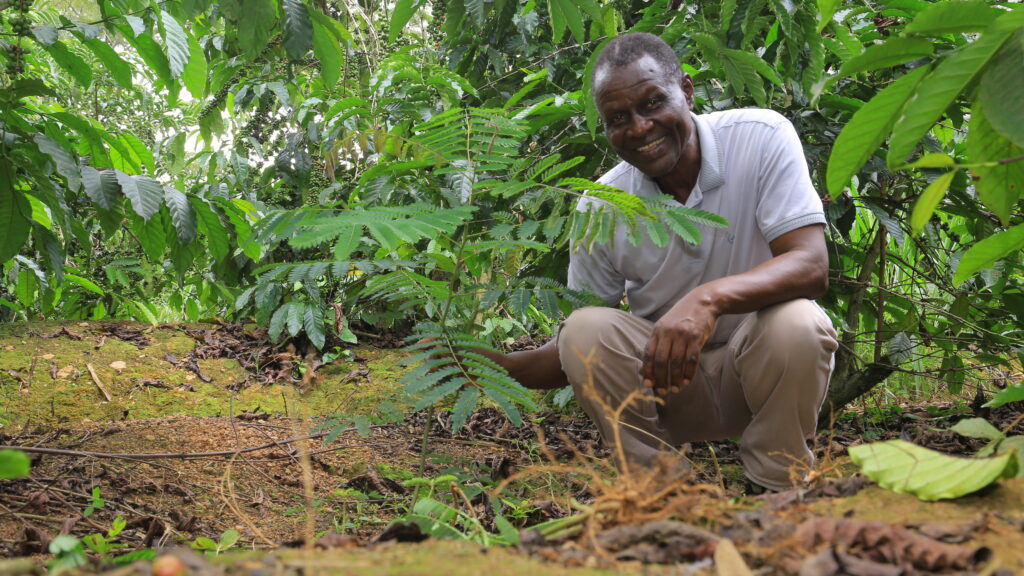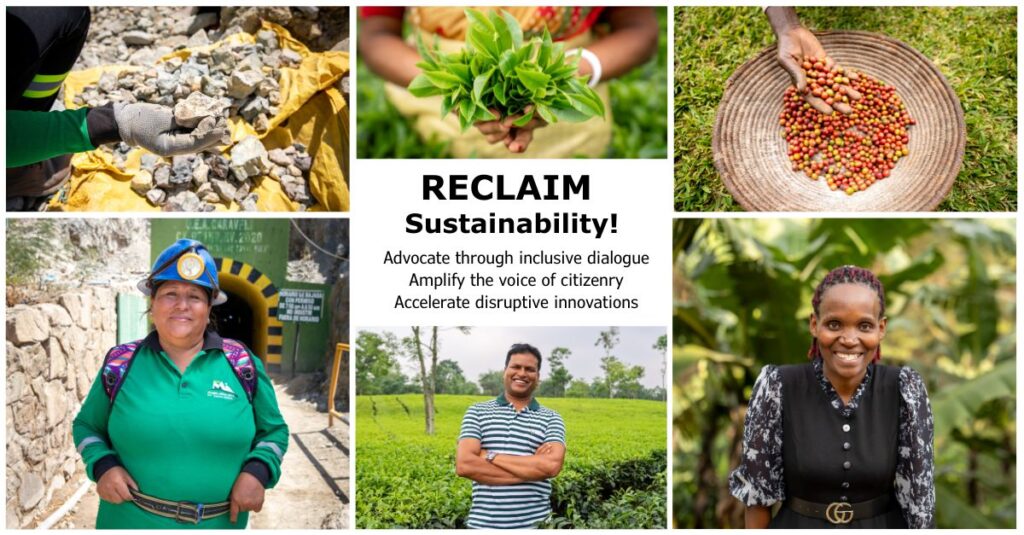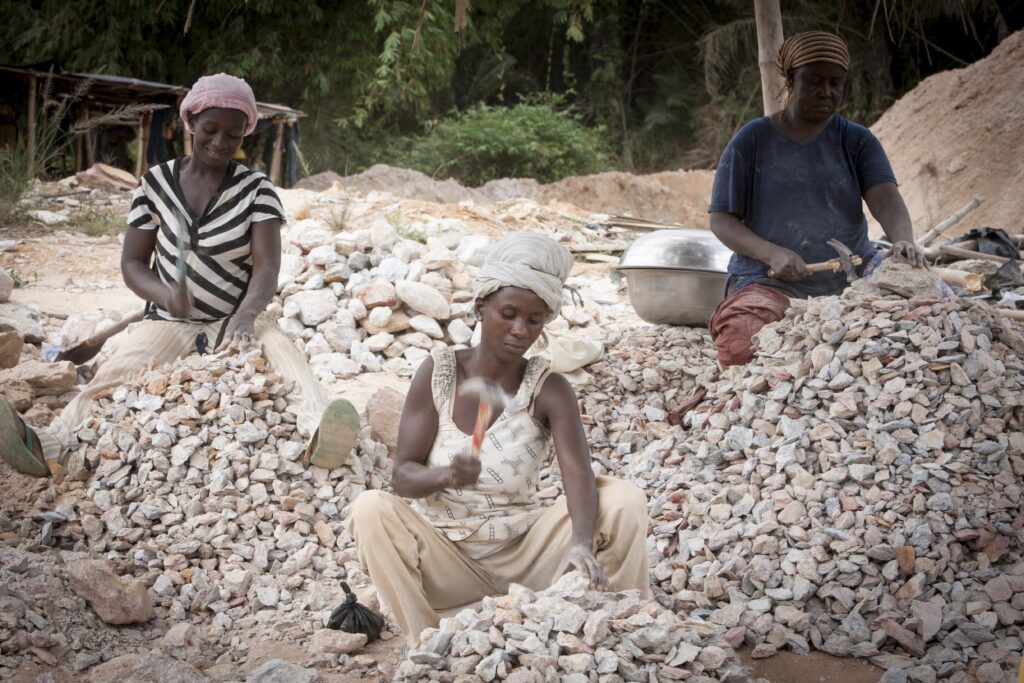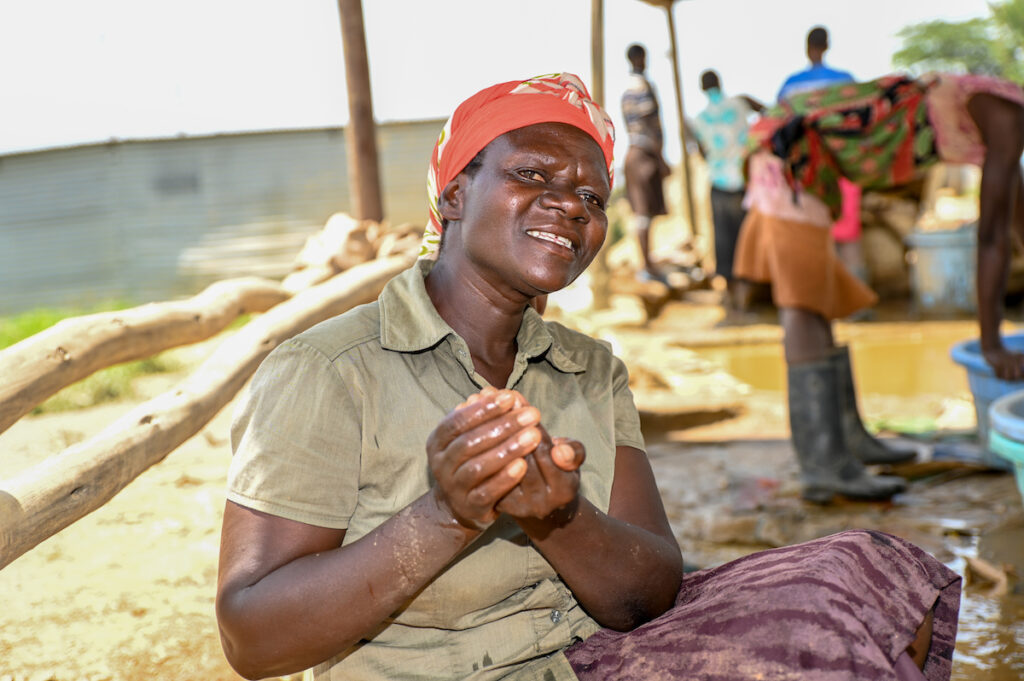Prior to venturing into barley, Mr. Niwagaba and his spouse were farming local sorghum and Irish potatoes. Both of them however cited limited agronomic knowledge, farming services such as market linkages, access to quality seed access, and agriculture extension services as the major contributors to their perennial low and poor quality yields.
The challenges we experienced at that time were very demoralizing. The lack of adequate income even pushed my wife and I to venture into other income-generating activities. One of those was trading ‘muramba’, a popular local brew in our region. We did this to feed our family.
Dues Niwagaba, Barley Farmer
Like many other farmers in his region, Mr. Niwagaba considered farming an unprofitable venture. The prospects for Niwagaba and other farmers in the South Western region in Uganda only started changing in 2017 after the launch of the aBi Development Limited ‘Creating shared Value in Agricultural Value Chain in Uganda’ project. The project aimed to boost the production and productivity of barley and beans in an effort to increase the supply of barley produce to Uganda Breweries Limited and beans to Grain Pulse Limited and other potential buyers.
Boosting production and participation
The ‘Creating Shared Value in Agricultural Value Chains project in Uganda’ project was implemented by Solidaridad in partnership with Grain Pulse Limited and Uganda Breweries Limited as off-takers. The project has been working to facilitate and build the capacity of 12,000 smallholder farmers to improve crop production and productivity, improve participation in the market bargain, improve access to inclusive financing and resource mobilization through village saving and loans association, and strengthening farmers’ institutional capacity for sustainability. The project objectives were to:
- Increase production and productivity of beans and barley
- Increase access to markets for smallholder farmers through efficient aggregation and marketing systems
- Establish strong farmer institutions and improve farmers’ organization capacities and business skills.
 copy (1).jpg)
Climate finance in Kenya
In Kenya, efforts to transform the agriculture sector have resulted in key reforms targeting high potential industrial crops, such as sugarcane, tea, cotton, and coffee, among others.
During the project implementation period, more than 11,000 smallholder beneficiaries received targeted training and support aimed at increasing individual farmers’ knowledge of good agronomic practices. The ‘Creating Shared Value’ project also aimed to enhance post-harvest handling practices, increase access to markets for the smallholder farmers through efficient aggregation and marketing systems. Notably, the project promoted bean farming as a rotational crop for improving household income through diversification and household food security.
A turning point
“My family was on the verge of despair when we first interacted with the Creating Shared Value project. The project offered solutions to some of our longstanding challenges as a farming family. These included training on good agronomic practices, access to extension services, high-yield barley seedlings, and beans. The support from the project rekindled my desire to pursue farming as my primary economic and income-generating activity,” Mr. Niwagaba remarked.
The support from the Creating Shared Value project, Mr. Niwagaba shared, was a key turning point in his life and that of his family. Niwagaba noted that the holistic project approach – production to markets – has significantly improved his farm’s yields. The farmer and his family now harvest 1000 kilograms of barley per acre, an increase from the 100-200 kilograms harvest at the start of the project.
“The increase in yields has significantly increased my family’s income. The additional income has enabled my family to move from a temporary to a permanent four-bedroom house. Unlike in the past, my spouse and I are now able to cater for our children’s school fees, food, and other household needs,” Mr. Niwagaba revealed.
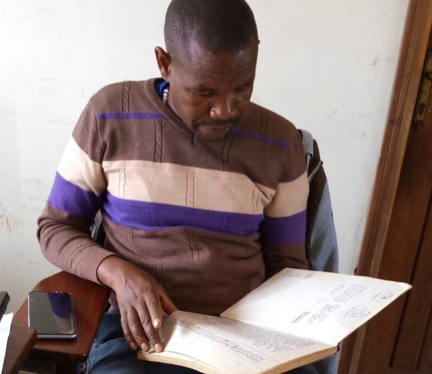
Thanks to the sustained support from the Creating Shared Value project and his determination, Niwagaba has grown into a leading barley producer. He currently holds the record for the highest barley harvest for the last two years. As a result of this performance, Mr. Niwagaba was selected as a contact farmer and trainer of trainers on barley good agronomic practice and post-harvest handling. The decision to elect him was arrived at through a consultative process between the region’s farmers and Solidaridad. Uganda Breweries Limited also appointed Mr. Niwagaba as an aggregator and a member of the marketing committee for farmers in Mushanje Village, Kashaha Parish, Bufundi Sub County, Rubanda District in Uganda.
“The Creating Shared Value project has transformed my life in more ways than I expected. I am now a top barley producer with extensive knowledge and power to influence decision-making for the benefit of the farmers in this region. I will continue to empower more farmers with knowledge and skills in barley production to enable them to realize their goals and dreams. Long live Barley!” Mr. Niwagaba remarked.
Creating Lasting Impact
The ‘Creating Shared Value’ project trained more than 11,000 farmers and supported them to adopt good agronomic practices, post-harvest handling, collective marketing, Village Savings and Loans Associations. The cumulative support has been linked to the overall increased productivity (400 to 1000 kilograms per acre) and high-quality barley and beans. Importantly, the project has contributed to increased quality of life as more farmers have become income and food secure. Furthermore, the project strengthened the unity among farmers resulting in the establishment of 26 farmers Village Savings and Loans Associations groups. These groups have facilitated savings and eased access to finance for members of the groups.

